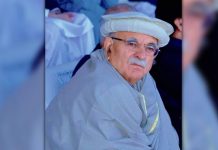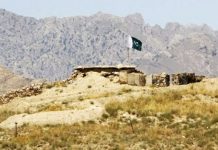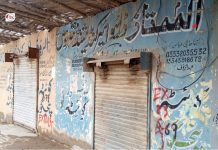Ganjal Baloch
When a nation, community, or state faces a socio-political crisis, gender boundaries often become less significant as people rally together to address the challenges. In such situations, women actively participate alongside men in various ways, including in resistance movements. Regardless of gender, people collaborate to fight against colonization, defend their rights, and strive for independence, justice, and equality.
When discussing women’s participation in wars, whether for independence or defending their state and community, the boundries are not limited by gender. Involvement is based on talent, dedication, commitment, emotions, and a sense of national duty and responsibility. Women, just like men, contribute based on their abilities and the desire to protect and serve their nation. In times of conflict, individuals of all genders collaborate to defend their rights and fight for their cause.
Indeed, history is replete with examples of women playing crucial roles in wars and struggles for independence. From ancient times to modern conflicts, women have proven time and again that they are not only capable but essential contributors to the fight for freedom and justice. Some of the examples are mentioned below.
Vietnam War:
- Long-haired Soldiers: During the Vietnam War, North Vietnamese women, known as “Long-haired Soldiers,” joined the Viet Cong and fought alongside men. They operated as guerrilla fighters, carrying out ambushes, providing intelligence, and participating in combat.
- Vietnam Women’s Union: The Vietnam Women’s Union played a significant role in supporting the war effort by mobilizing women in various capacities. They served as nurses, teachers, and propaganda disseminators and supported soldiers and their families.
Algerian War of Independence (1954-1962):
- Women played a significant role in the Algerian War of Independence. They participated in armed resistance, provided medical aid, served as messengers, and supported the National Liberation Front (FLN) in various capacities.
Bangladesh Liberation War (1971):
- Women in Bangladesh played a crucial role during the Liberation War against Pakistan. They provided support by acting as spies, couriers, and nurses. Many women also took up arms and fought alongside men in the struggle for independence.
American Revolutionary War (1775-1783):
- During the American Revolutionary war, women collaborated by acting as spies, gathering intelligence for the American forces, providing support as camp followers, fundraising for the Continental Army, engaging in political activism and propaganda, and serving as nurses, offering medical care to wounded soldiers. Their collective efforts played a crucial role in sustaining the fight for independence, providing essential support, resources, and morale to the Continental Army.
Night Witches – Soviet Union:
- The Night Witches were an all-female Soviet Air Force unit during World War II. They flew harassment and bombing missions against German forces using outdated biplanes. Despite facing significant challenges, these brave women successfully conducted their operations and earned the respect of their male counterparts.
Female Battalion of Death – Russia:
- In 1917, during World War I, Russia formed the Female Battalion of Death. Composed entirely of women, this unit aimed to boost morale and inspire male soldiers. They participated in combat on the Eastern Front and fought with great determination.
Women’s Revolutionary Association – Cuba:
- In the Cuban Revolution, women played a vital role in the armed struggle against the Batista regime. The Women’s Revolutionary Association (FMC) mobilized women from various backgrounds to support the revolution. They provided logistical support and medical aid and served as messengers and fighters.
Palestinian Women’s Movement – Palestine:
- Palestinian women have been actively involved in the struggle for independence and self-determination. They have participated in protests, engaged in civil disobedience, and joined armed resistance groups against Israeli occupation. Their involvement ranges from political activism to providing support for fighters and organizing grassroots movements.
Israeli War of Independence (1948):
- During the Israeli War of Independence, women actively participated in the defense of their newly formed state. They served as combat soldiers, intelligence operatives, and medical personnel, taking on essential roles in the military effort.
Mexican War of Independence (1810-1821):
- During the Mexican War of Independence, women collaborated by supporting the revolution in various ways. They contributed as spies, gathered vital information for the revolutionaries, provided financial support and resources, acted as messengers, and participated in the armed resistance. Their collaborative efforts played a significant role in the success of the independence movement, demonstrating courage and determination in the pursuit of freedom.
Women’s Army Corps (WAC) – United States:
- During World War II, the Women’s Army Corps played a crucial role in supporting the war effort. WAC allowed women to serve in non-combat roles, which freed up men for active duty. These women worked as nurses, clerks, and mechanics and performed various administrative and logistical tasks.
Women’s Auxiliary Service (WAS) – United Kingdom:
- During World War II, the Women’s Auxiliary Service in the United Kingdom played a significant role in supporting the military. Women served as ambulance drivers, radio operators, codebreakers, and in various administrative and technical positions. Their contributions were essential to the war effort.
Balkan Wars:
Women in the Yugoslav Partisans:
- During the Balkan Wars, women in the Yugoslav Partisans fought against Axis forces. They joined partisan units, engaging in combat, sabotage, and reconnaissance missions. Notable figures include Milunka Savić, a Serbian woman who became one of the most decorated female soldiers in history.
Lebanese Civil War:
Women in the Lebanese Resistance:
- Women played an active role in the Lebanese Resistance during the civil war. They participated in armed groups, served as fighters, and carried out various tasks in support of their cause.
These examples highlight the collective efforts of women from various countries who have actively participated in wars for freedom. Their dedication, sacrifices, and determination have been instrumental in advancing the cause of liberation and challenging societal norms regarding women’s roles in warfare. These women fought for the liberation of their homeland, enduring tremendous hardships, sacrifices, and personal losses. Their contributions, both on the front lines and behind the scenes, were instrumental in the ultimate victory of their lands, leaving a lasting legacy of women’s participation and strength in times of war.
Now, when it comes to Baloch Women’s Participation in the Liberation Movement of Balochistan: The participation of Baloch women in the war for liberation has garnered both praise and, to my dismay, criticism. Suddenly, their intellectual capacity awakens when a woman takes up arms, as if Baloch women are merely showpieces like some state-sponsored women or subjects of weakness, devoid of any role within their society, confined to the corners of their homes with no rights to make decisions for themselves.
This logic of “Why Baloch Women” is fundamentally flawed. Why should Baloch women be alienated from the immense process of the liberation movement? Women are not alien beings to be discussed, and then you talk about solely sending them for education. And are Baloch men not deserving of education? Moreover, Shari Baloch, who courageously carried out a self-sacrificing act (Jind-Nadri), was an MPhil scholar. Was she not educated? Her choice, will, and sense of duty were her own. If you lack that sense of duty, do not boast about it.
I find it perplexing how some of our people harbor a soft spot for the colonial Pakistan Army. This colonial Pakistan Army personnel have been responsible for the deaths of thousands of our people, actively engaging in the genocide of the Baloch. Every Pakistan Army personnel is an enemy involved in the Baloch genocide, yet our people are raising the question of sending women to fight them.
Women have always stood alongside their fellow countrymen in the face of every enemy that threatened their land. They have fearlessly participated in countless wars, embracing martyrdom on the battlefields, carrying out crucial missions, and defending their homeland. It is of utmost importance to acknowledge and appreciate the significant role of Baloch women in this noble cause. With women constituting a substantial portion of the population, it is essential not to exclude them from their national duty. How can freedom be achieved with only half of the population actively involved? Women must understand their roles and actively join the war of independence, as every individual has a responsibility towards their land and people that needs to be fulfilled.
Disclaimer: The views and opinions expressed in this article are those of the author and do not necessarily reflect the official policy or position of The Balochistan Post or any of its editors.





























